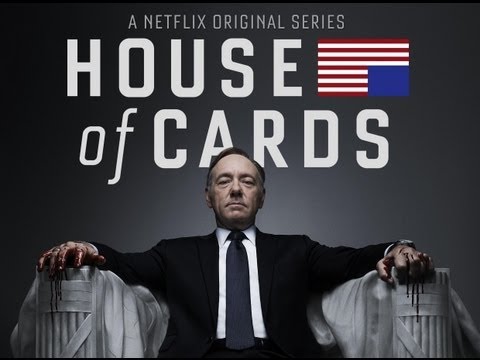Picture by amateurartguy
The above is the all seeing eye of Mark Zuckerberg, lord of Facebook (bear with me). Lord Zuckerberg's eye is all seeing because his computers record every one of your actions in his realm (i.e. Facebook). Every preference you list, every page you like and every profile you view is stored on Lord Zuckerberg's computers. This treasure trove of information about Facebook's users is its Big Data. Now Lord Zuckerberg has promised his people that he will not look at their chats or messages. He doesn't need to. For example, his Zuckerbergness can accurately predict your sexuality from your Facebook activity. And if you've yet to reveal it publicly, then he can send you an ad for help with coming out.
Your Facebook likes provide a huge amount of data about you that can be used to make accurate and novel predictions. A recently published study found that they could accurately predict all sorts about people from their Facebook likes. The Zuck Man knows -
Facebook is a huge social network where over one billion people interact. The Big Data produced is vast and personal. What does Facebook do with your personal data? No surprises here they're trying to make money out of it. Obviously advertisers would fall over themselves to get their grubby corporate mitts on all that data. Or not - Facebook is not making as much money as you'd expect. At least, not as much as investors wanted. Last year's initial public offering of Facebook on the stock market saw many investors lose a lot of money by vastly overestimating Facebook's value. Investors and advertisers are all starting to wonder, have they all been taken for zuckers?
Advertisers have had 72 years to perfect the TV ad (for the curious here's the first TV ad to be broadcast). They have very accurate methods for calculating the exact impact of these ads. They can control an entire screen and a family's attention for 30 seconds of sound and images. They know how many sales an ad will garner and can therefore calculate whether a TV ad campaign is going to get a good return on their investment. What exactly is a Facebook post going to do for them?
Facebook's Advertising Business
Facebook has two goals: Users must want to use Facebook more than any other social network; Advertisers must know that advertising on this social network will result in its users buying products. Facebook's big problem is the fundamental disconnect between what its users want to do on its network and what its advertising clients will pay for them to do. Users don't want to socialize in a sea of ads and advertisers are never gonna pay for posts that don't lead to sales. We have a conundrum.
In May last year General Motor's marketing team pulled their $10 million Facebook advertising budget. They publicly announced this the day before Facebook's launch on the stock market, bit of a dick move. GM's beefs were two in number. Beef the first was that they had no concrete proof that these ads were more effective than their free Facebook fan page. Beef the second, Facebook refuses to allow big obnoxious video ads. The Zuck's reasoning for laying down the law on a $10 million dollar client is to ensure that users aren't turned off from Facebook. Remember Myspace? Exactly. Myspace hemorrhaged users because it got greedy and flooded the site with ads. Facebook is not going to let GM ruin its user experience. It is however trying desperately to show its advertisers exactly how effective its ads are, who they're reaching and what they go on to do. And that is where your data comes in. Facebook is committed to using your data to allow advertisers to specify exactly who sees their ads, and to inform them how many people it eventually reached.
Facebook allows its advertisers to target an audience based on age, location, relationship status, sexuality, education level, what they 'like' and who they are connected to. As well as texts, links, logos and small photos Facebook also offers advertisers 'sponsored stories'. A sponsored story is paid for and then pops up in your news feed. If you like it then all of your friends will see it in their news feed. The more likes your ad gets the more people will see it and your marketing message's reach can increase exponentially.
It may be a little alarming that Marky-Z and co are doing their best to commercialize a space where you spend a lot of personal contact time with friends and family. However, the Facebook team realize that their only actual resource is their users. They've shown that they are not willing to risk becoming Myspace by turning down GM's insistence on video ads. And guess who has just come crawling back?
Why do your friends' Facebook pages always look odd?
There is no one Facebook. Pretty much every Facebook page in use today is an experiment of some kind. Mark's merry men (and of course worthy women) are constantly testing new and different features for the Facebook page live. Shades, placing, new features, font in fact pretty much everything to do with the page vary hugely for each user. Each change is a test and vast amounts of data is gathered to see how users reacted. One of the things Facebook uses your data for is to optimize its website - to increase the time you spend socializing and your propensity to buy what's being advertised. Loads of Internet companies do this. It's called A/B testing. Marissa Mayer, now CEO of Yahoo, claims that her team at Google once tested 41 shades of blue for the Google toolbar to see which was the most clickable. Rock and Roll... Interestingly, Facebook operates so many tests that it uses a programme called Gatekeeper to keep track of them all. Gatekeeper ensures that Facebook knows which bit of data is the result of which change.
Facebook has some fierce competition ahead. It needs to compete with traditional advertising to show advertisers that it has an effective advertising product. Twitter, Google+ and Google's Search Ads are all competing with Facebook for Advertiser's web spend. And of course there is the example of Myspace. Someday soon there will be another new social network type thing that will try and steal the next generation of users from Facebook. Twitter's already doing its best. Facebook needs to compete with the rest of the internet to keep its users where they are and looking at its ads. Which means that Mark Zuckerberg is working for us, and will probably not do too many horrible things with our data. Disagree? Do you fear the Z-man? Tell me about it below!
Your Facebook likes provide a huge amount of data about you that can be used to make accurate and novel predictions. A recently published study found that they could accurately predict all sorts about people from their Facebook likes. The Zuck Man knows -
- how you vote,
- your religion,
- whether you smoke and even
- your I.Q.
For some reason the aforementioned study also found a correlation between liking curly fries and having a high I.Q. Go figure.
Facebook is a huge social network where over one billion people interact. The Big Data produced is vast and personal. What does Facebook do with your personal data? No surprises here they're trying to make money out of it. Obviously advertisers would fall over themselves to get their grubby corporate mitts on all that data. Or not - Facebook is not making as much money as you'd expect. At least, not as much as investors wanted. Last year's initial public offering of Facebook on the stock market saw many investors lose a lot of money by vastly overestimating Facebook's value. Investors and advertisers are all starting to wonder, have they all been taken for zuckers?
Advertisers have had 72 years to perfect the TV ad (for the curious here's the first TV ad to be broadcast). They have very accurate methods for calculating the exact impact of these ads. They can control an entire screen and a family's attention for 30 seconds of sound and images. They know how many sales an ad will garner and can therefore calculate whether a TV ad campaign is going to get a good return on their investment. What exactly is a Facebook post going to do for them?
Facebook's Advertising Business
Facebook has two goals: Users must want to use Facebook more than any other social network; Advertisers must know that advertising on this social network will result in its users buying products. Facebook's big problem is the fundamental disconnect between what its users want to do on its network and what its advertising clients will pay for them to do. Users don't want to socialize in a sea of ads and advertisers are never gonna pay for posts that don't lead to sales. We have a conundrum.
In May last year General Motor's marketing team pulled their $10 million Facebook advertising budget. They publicly announced this the day before Facebook's launch on the stock market, bit of a dick move. GM's beefs were two in number. Beef the first was that they had no concrete proof that these ads were more effective than their free Facebook fan page. Beef the second, Facebook refuses to allow big obnoxious video ads. The Zuck's reasoning for laying down the law on a $10 million dollar client is to ensure that users aren't turned off from Facebook. Remember Myspace? Exactly. Myspace hemorrhaged users because it got greedy and flooded the site with ads. Facebook is not going to let GM ruin its user experience. It is however trying desperately to show its advertisers exactly how effective its ads are, who they're reaching and what they go on to do. And that is where your data comes in. Facebook is committed to using your data to allow advertisers to specify exactly who sees their ads, and to inform them how many people it eventually reached.
Facebook allows its advertisers to target an audience based on age, location, relationship status, sexuality, education level, what they 'like' and who they are connected to. As well as texts, links, logos and small photos Facebook also offers advertisers 'sponsored stories'. A sponsored story is paid for and then pops up in your news feed. If you like it then all of your friends will see it in their news feed. The more likes your ad gets the more people will see it and your marketing message's reach can increase exponentially.
It may be a little alarming that Marky-Z and co are doing their best to commercialize a space where you spend a lot of personal contact time with friends and family. However, the Facebook team realize that their only actual resource is their users. They've shown that they are not willing to risk becoming Myspace by turning down GM's insistence on video ads. And guess who has just come crawling back?
Why do your friends' Facebook pages always look odd?
There is no one Facebook. Pretty much every Facebook page in use today is an experiment of some kind. Mark's merry men (and of course worthy women) are constantly testing new and different features for the Facebook page live. Shades, placing, new features, font in fact pretty much everything to do with the page vary hugely for each user. Each change is a test and vast amounts of data is gathered to see how users reacted. One of the things Facebook uses your data for is to optimize its website - to increase the time you spend socializing and your propensity to buy what's being advertised. Loads of Internet companies do this. It's called A/B testing. Marissa Mayer, now CEO of Yahoo, claims that her team at Google once tested 41 shades of blue for the Google toolbar to see which was the most clickable. Rock and Roll... Interestingly, Facebook operates so many tests that it uses a programme called Gatekeeper to keep track of them all. Gatekeeper ensures that Facebook knows which bit of data is the result of which change.
Facebook has some fierce competition ahead. It needs to compete with traditional advertising to show advertisers that it has an effective advertising product. Twitter, Google+ and Google's Search Ads are all competing with Facebook for Advertiser's web spend. And of course there is the example of Myspace. Someday soon there will be another new social network type thing that will try and steal the next generation of users from Facebook. Twitter's already doing its best. Facebook needs to compete with the rest of the internet to keep its users where they are and looking at its ads. Which means that Mark Zuckerberg is working for us, and will probably not do too many horrible things with our data. Disagree? Do you fear the Z-man? Tell me about it below!





